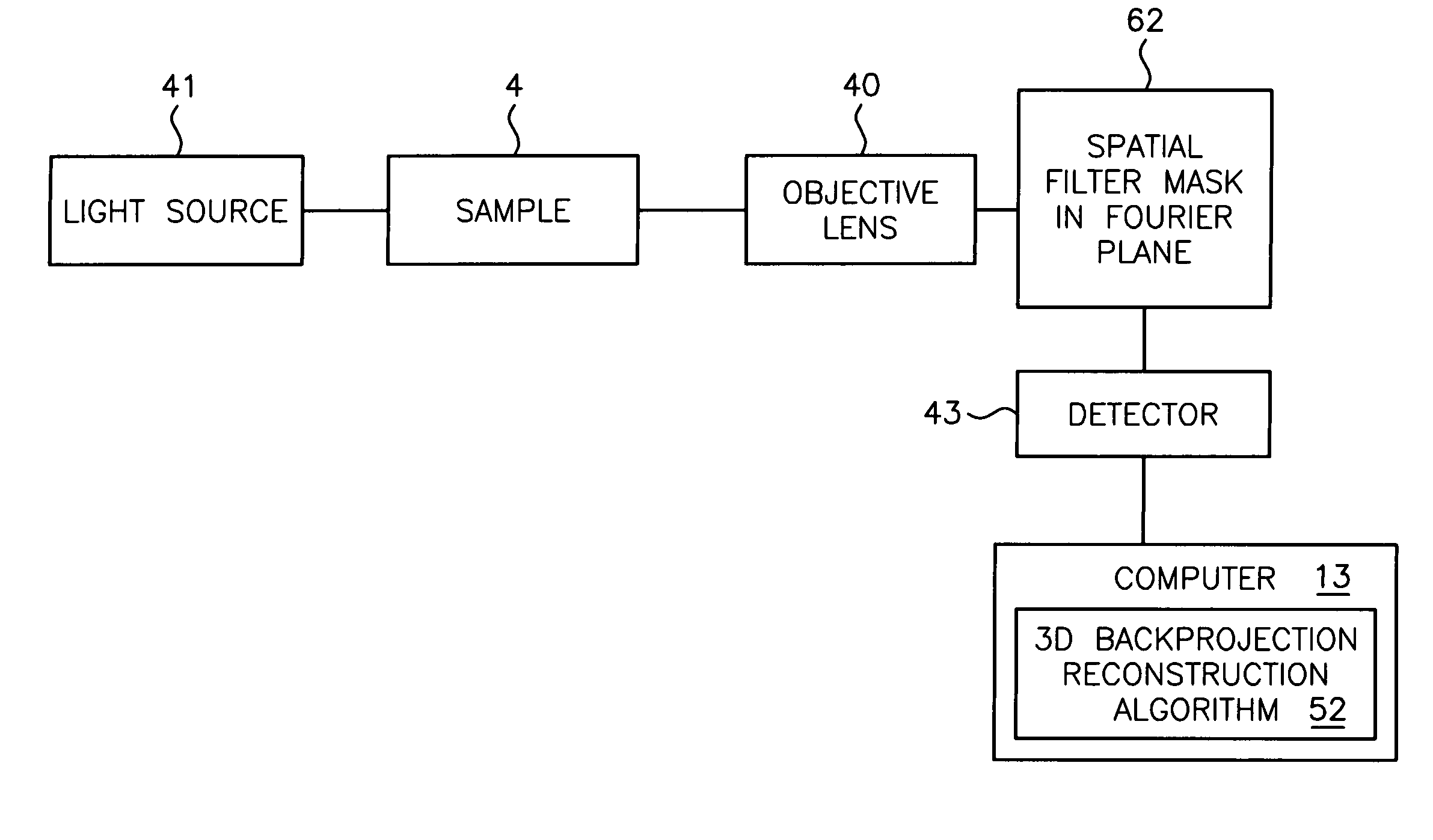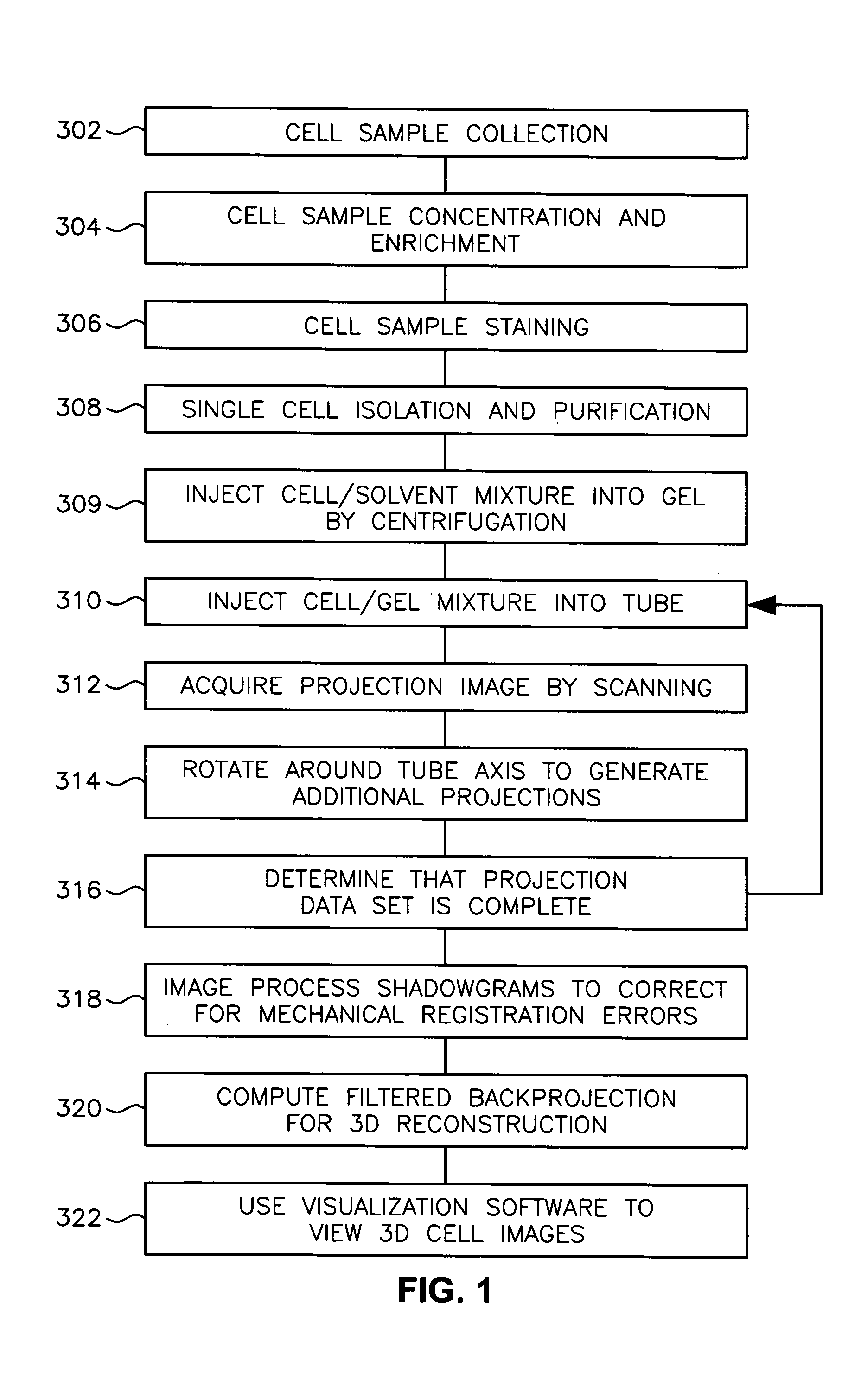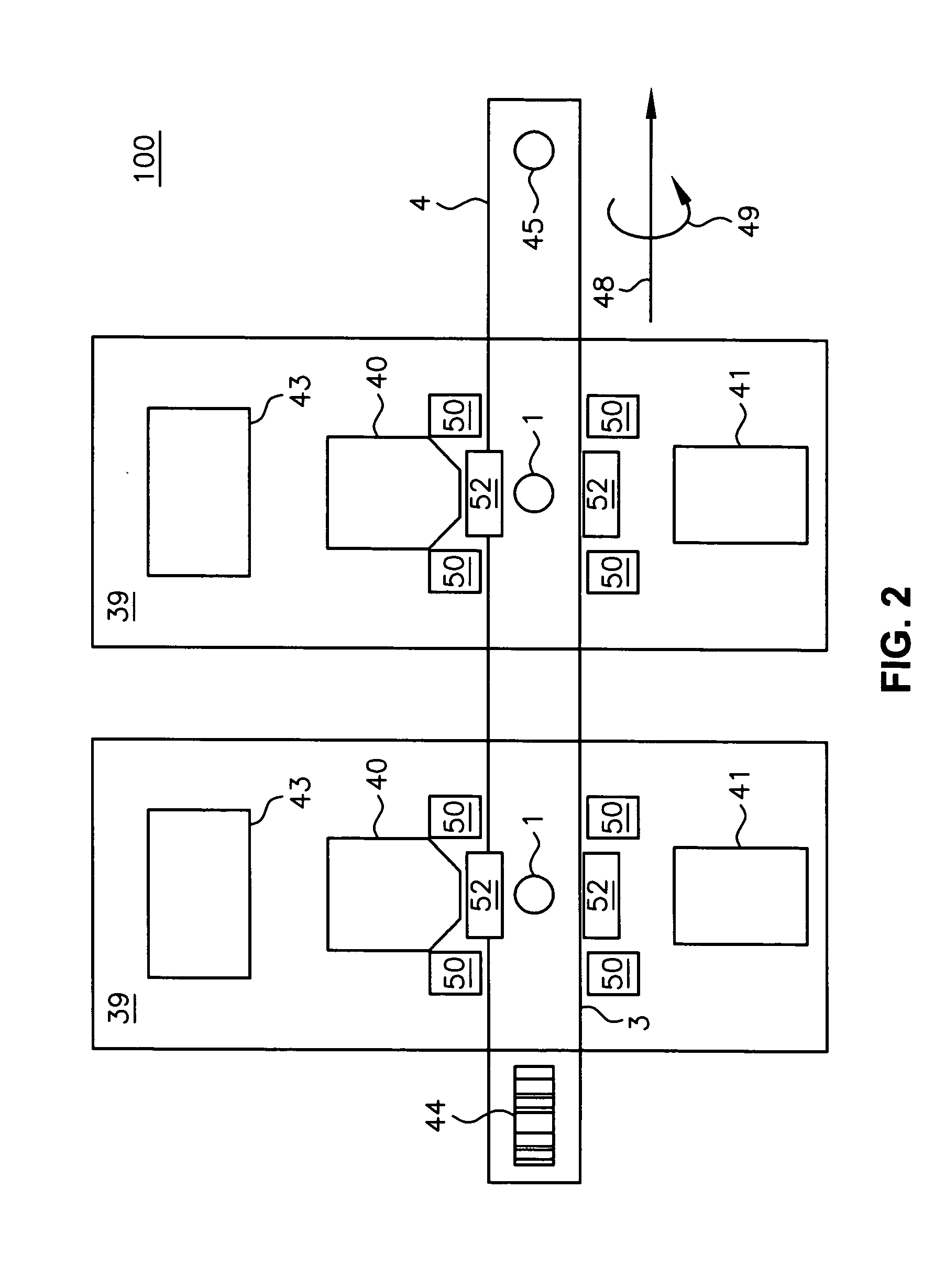System and method for processing specimens and images for optical tomography
a technology of optical tomography and processing system, applied in the field of imaging specimens, can solve problems such as optical system limitations, lateral smearing of images, and degrading images with degrading optical aberrations
- Summary
- Abstract
- Description
- Claims
- Application Information
AI Technical Summary
Problems solved by technology
Method used
Image
Examples
Embodiment Construction
[0041] The method and apparatus of the invention is here described with reference to specific examples that are intended to be illustrative and not limiting. The method and apparatus of the invention is amenable to additional features such as matching of the refractive indices of the materials in the samples and the inclusion of microscopic barcodes to facilitate identification and tracking.
[0042] Referring now to FIG. 1, a schematic view of a high level flow diagram of a scanning system and method for scanning samples using optical tomography as contemplated by one example embodiment of the current invention is illustrated. As typically implemented, the steps may include a combination of manual operations, as in sample collection, and automated processing, as in using reconstruction algorithms or equivalent types of operations including combinations of manual and automated operations. Steps included in preparing, acquiring, reconstructing and viewing three-dimensional images begin...
PUM
 Login to View More
Login to View More Abstract
Description
Claims
Application Information
 Login to View More
Login to View More - R&D
- Intellectual Property
- Life Sciences
- Materials
- Tech Scout
- Unparalleled Data Quality
- Higher Quality Content
- 60% Fewer Hallucinations
Browse by: Latest US Patents, China's latest patents, Technical Efficacy Thesaurus, Application Domain, Technology Topic, Popular Technical Reports.
© 2025 PatSnap. All rights reserved.Legal|Privacy policy|Modern Slavery Act Transparency Statement|Sitemap|About US| Contact US: help@patsnap.com



